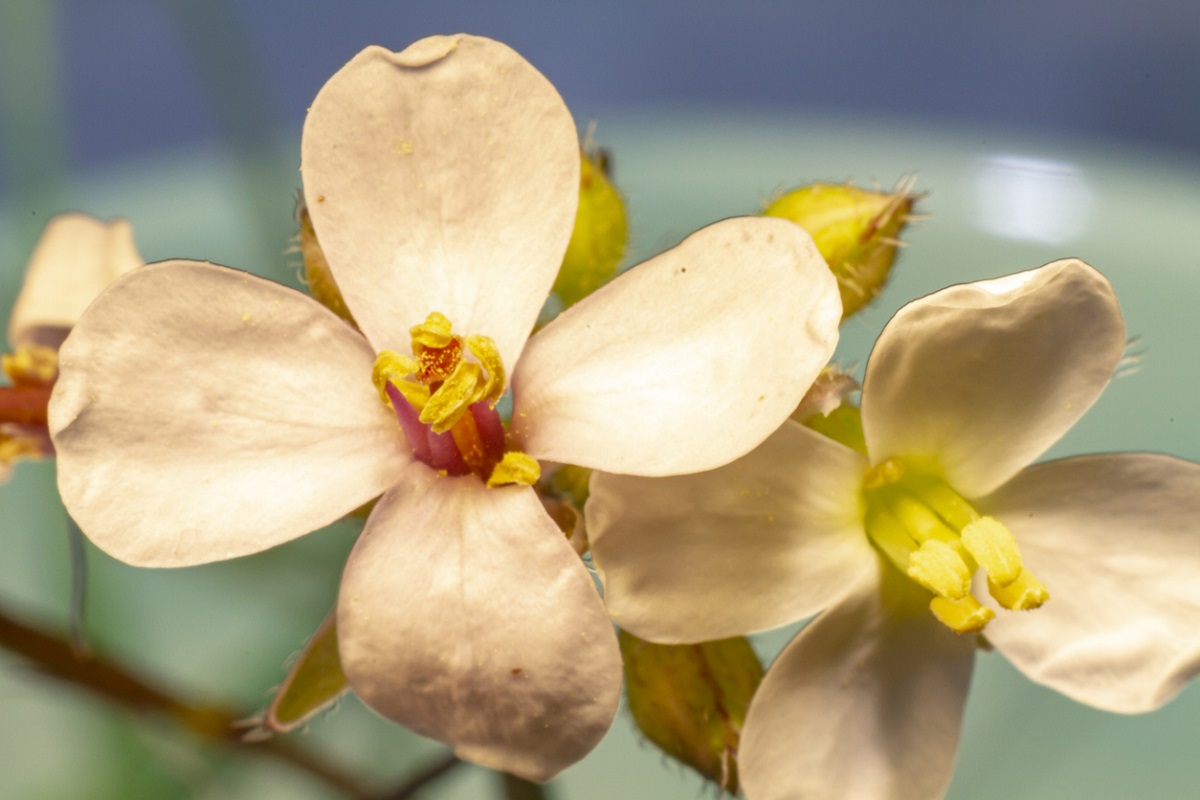
Gene That Controls Self-Pollination in Plants Identified
April 6, 2022| |
The “Highlander” gene was found to regulate self-incompatibility that has the potential to allow plants to self-fertilize, creating opportunities to breed stronger, more resilient crops for sustainable agriculture.
The investigation started with the observation of the field poppy, Papaver rhoeas, which has the mechanism to avoid problems in self-fertilization. Poppies can recognize their own pollen and trigger a cell suicide program, providing a precise and clean way to eliminate unwanted pollen grains. This ability to control whether or not a plant can self-fertilize has the potential to help breeders develop more resilient crops.
The researchers then used the Thale cress (Arabidopsis thaliana), a “self-compatible” plant, as the basis for research to obtain information about engineering self-incompatibility in crops. The plant underwent genetic screening to identify a new gene that is critical for regulating self-incompatibility. The researchers then developed an engineered self-incompatible Arabidopsis plant line to identify the “Highlander” gene, which when removed, abolished self-incompatibility and made a self-incompatible plant completely self-fertile. The gene also encodes the PGAP1 protein that is found in yeast and humans, and now in plants as well. This is the first time that a function for it has been identified in plants.
The “Highlander” gene was named after the immortal warrior in the 1986 film of the same name. Read more about it in the University of Birmingham's news release and in the article published by Current Biology.
| |
You might also like:
- Scientists Identify Gene that Could Prevent Cross-pollination
- Identification of Candidate Self-Incompatibility-Associated Genes of Erigeron breviscapus
- Researchers Engineer Potyvirus Resistance in Arabidopsis Using CRISPR/Cas9
Biotech Updates is a weekly newsletter of ISAAA, a not-for-profit organization. It is distributed for free to over 22,000 subscribers worldwide to inform them about the key developments in biosciences, especially in biotechnology. Your support will help us in our mission to feed the world with knowledge. You can help by donating as little as $10.
-
See more articles:
-
News from Around the World
- Hidden DNAs Uncovered as Human Genome is Completely Sequenced
- Whole Genome Resequencing of Sorghum Provides Insights for Crop Improvement
- BNI-enhanced Wheat Research Wins 2021 Cozzarelli Prize by PNAS
- Science Diplomacy to Provide Platforms for Sustainable Development
- Research Team Finds A Single Gene Can Affect Entire Ecosystem
-
Research Highlights
- Transgenic Maize Does Not Cause Harm to Non-Target Organisms
- Overexpression of Cowpea NAC Genes Promotes Growth and Stress Tolerance in Arabidopsis
- Gene That Controls Self-Pollination in Plants Identified
-
Read the latest: - Biotech Updates (January 28, 2026)
- Gene Editing Supplement (January 28, 2026)
- Gene Drive Supplement (February 22, 2023)
-
Subscribe to BU: - Share
- Tweet

